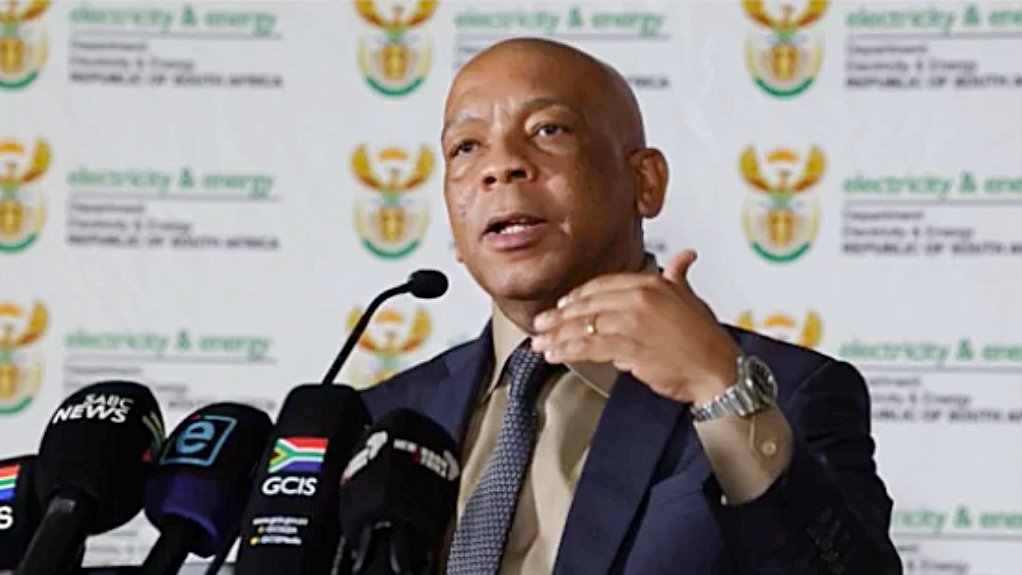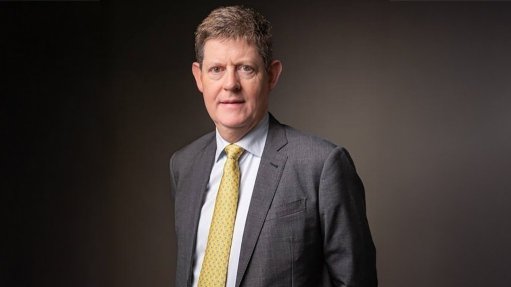Electricity reform ‘irreversible’, Ramokgopa insists as he again urges Eskom not to pursue legal case against traders
Electricity and Energy Minister Dr Kgosientsho Ramokgopa insists that the reforms under way in the electricity sector are “irreversible”, and has again confirmed that he has asked the Eskom board not to proceed with its legal case against the regulator’s decision to license five additional electricity traders in 2024.
Having called a media briefing to provide an update on the performance of the grid amid concerns that Eskom was again relying too heavily on its expensive diesel generators, Ramokgopa fielded a series of questions about the status of the reform process and Eskom’s move to have the High Court review and set aside five domestic trading licences.
The briefing also followed a statement by the South African Local Government Association (Salga) in which it joined Eskom in voicing opposition to the licensing of traders by the National Energy Regulator of South Africa (Nersa) “without a clear regulatory framework”.
Salga argued that there was a risk that municipal revenues and service-delivery capacity could be eroded should traders target what it described as “high-value, reliable customers”, and leave municipalities with a “disproportionate share of defaulting customers”.
In its review application against Nersa, in which Green Electron Market, CBI Electric Apollo, GreenCo Power Services, Discovery Green and NOA Group Trading are cited, Eskom has argued that the licences should not have been issued in the absence of trading rules. This despite the fact that trading licences had been awarded to several other entities prior to 2024, as well as subsequently in 2025, with more applications currently under adjudication.
Eskom argues that the five licences unlawfully infringe on its existing licence and areas of supply and could lead to a ‘cherry-picking’ of profitable customers by traders.
In a joint statement, Business Unity South Africa and Business Leadership South Africa slammed Eskom’s legal challenge, which they said was undermining South Africa's national goal of achieving energy security, instead creating uncertainty and sending a negative signal to investors.
In response, Ramokgopa issued a statement on August 8 urging Eskom to withdraw its case and in the briefing reiterated that stance.
He said that, while it was only natural to have friction as the market shifted from a monopolistic structure to one that included multiple participants, he was not in favour of Eskom resorting to the courts to resolve what was a technically complex matter.
He highlighted that Nersa had initiated a process to finalise the rules, and the timeline had been reduced from an initial 12 months to three months in an effort to bring certainty as a matter of priority.
“It’s in that context that I told Eskom that it’s not advisable that they go to the courts,” he said, indicating that he had conveyed the message directly to Eskom chairperson Dr Mteto Nyati in a recent meeting.
He described the court process as a “particularly unhelpful approach” that would “muddy the waters” and indicated that he had urged Eskom to, instead, contribute to the rules-setting process, so that the way was again cleared for Nersa to issue trading licences.
“Everyone wants a rules-based approach,” he said, indicating that he was optimistic that all market participants would be able to tolerate a three-month process.
As Eskom’s shareholder Minister, Ramokgopa denied that Eskom was opposed to the reforms and also insisted that government had no intention of reversing course.
“The reform agenda is irreversible,” the Minister stressed.
He added that the changes were being pursued primarily to remove the prevailing risk to stable and affordable electricity supply by having responsibility for that supply concentrated in a single entity.
He also argued that Eskom should be allowed to participate in the unfolding energy transition, including by investing in renewable energy.
The utility has indicated that, beside a 5 GW project portfolio directly linked to land and infrastructure at coal stations that would be retired by 2030, it had ambitions to build 32 GW of renewables capacity by 2040.
It is moving to set up a standalone entity known as Eskom Green to begin building such capacity in partnership with independent power producers.
Ramokgopa said that any renewables projects developed by Eskom would need to be cost competitive, however.
“If Eskom’s prices are not right, they will be decimated.”
Highlighting that 8 GW of coal would be retired by 2030, followed by 15 GW by 2035, he argued that Eskom should not be excluded from building new generation capacity alongside the private sector.
He even expressed anxiety that, should Eskom’s role in generation be allowed to end, it could result in poor households not receiving electricity in future.
Article Enquiry
Email Article
Save Article
Feedback
To advertise email advertising@creamermedia.co.za or click here
Press Office
Announcements
What's On
Subscribe to improve your user experience...
Option 1 (equivalent of R125 a month):
Receive a weekly copy of Creamer Media's Engineering News & Mining Weekly magazine
(print copy for those in South Africa and e-magazine for those outside of South Africa)
Receive daily email newsletters
Access to full search results
Access archive of magazine back copies
Access to Projects in Progress
Access to ONE Research Report of your choice in PDF format
Option 2 (equivalent of R375 a month):
All benefits from Option 1
PLUS
Access to Creamer Media's Research Channel Africa for ALL Research Reports, in PDF format, on various industrial and mining sectors
including Electricity; Water; Energy Transition; Hydrogen; Roads, Rail and Ports; Coal; Gold; Platinum; Battery Metals; etc.
Already a subscriber?
Forgotten your password?
Receive weekly copy of Creamer Media's Engineering News & Mining Weekly magazine (print copy for those in South Africa and e-magazine for those outside of South Africa)
➕
Recieve daily email newsletters
➕
Access to full search results
➕
Access archive of magazine back copies
➕
Access to Projects in Progress
➕
Access to ONE Research Report of your choice in PDF format
RESEARCH CHANNEL AFRICA
R4500 (equivalent of R375 a month)
SUBSCRIBEAll benefits from Option 1
➕
Access to Creamer Media's Research Channel Africa for ALL Research Reports on various industrial and mining sectors, in PDF format, including on:
Electricity
➕
Water
➕
Energy Transition
➕
Hydrogen
➕
Roads, Rail and Ports
➕
Coal
➕
Gold
➕
Platinum
➕
Battery Metals
➕
etc.
Receive all benefits from Option 1 or Option 2 delivered to numerous people at your company
➕
Multiple User names and Passwords for simultaneous log-ins
➕
Intranet integration access to all in your organisation





















